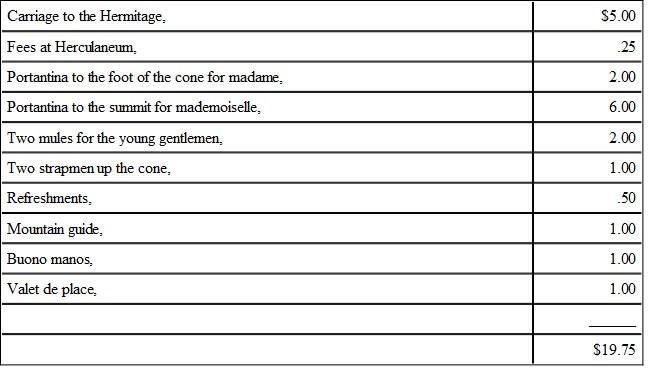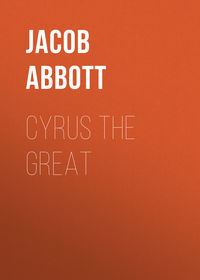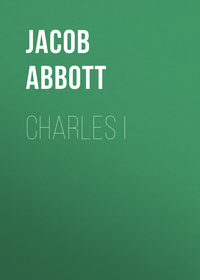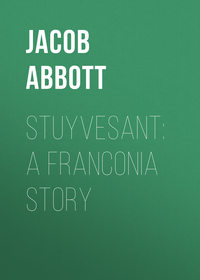
Rollo in Naples
"Rosie may go instead," said Mrs. Gray, "and when she has seen it, she may come back and tell me, and if she thinks it is worth while I will go."
"Well," said Rollo; "come, Rosie."
So Rollo led the way, and Rosie followed out of the parlor into the hall, and from the hall along a sort of corridor which led to a narrow and winding stone stair.
"No," said Rosie, as soon as she began to ascend the stair, "I don't think mother will like to come. She does not like to go up long stairs, especially stone stairs, and more especially still, stairs that wind round and round."
"Wait and see," said Rollo.
After going round and round several times,—all the while ascending,—Rollo came out to a sort of open passage way, paved with glazed tiles of a very pretty pattern, where there was a door leading out to a balcony. From this balcony there was a narrow iron stair which led up on the outside of the house to the roof. Rollo led the way up this stair, and Rosie followed him, though somewhat timidly. They landed at length on a sort of platform among the chimneys, from which another stair led up to another platform, higher still, where Josie was.
"There!" said Rollo, as soon as he reached the first platform, "don't you think your mother would like to be here?"
Rosie looked around, and saw that a magnificent panorama presented itself to her view.
"She would like to be here very much, if she only dared to come," said Rosie.
On looking towards the east, Rosie could survey the whole shore of the bay in that direction, with the continuous line of towns and villages along the margin of the water, and the immense green slopes of Vesuvius rising beyond. Among the green fields and groves, far up these slopes, white hamlets and villas were scattered, and above, the double summit of Vesuvius was seen, with dense volumes of white smoke ascending from one of the peaks. The children, too, could look from where they stood far out over the bay, and see the ships and steamers in the offing, and great numbers of small boats plying to and fro nearer the shore.
Rollo had an opera glass in his hand, which he used as a spy-glass. He let Rosie look through this glass at the mountain, so that she might see the smoke coming out more distinctly. With the glass, besides the general column of vapor, she could discern several places, near the summit, where small, separate puffs of smoke were issuing.
Farther down the mountain, Rollo directed her attention to a white building, which was seen very distinctly in the rays of the setting sun. This building, he said, must be the Hermitage.
"How do you know it is the Hermitage?" asked Rosie.
"I know by the situation of it," said Rollo. "Look through the glass and you will see that it is the highest house on the mountain side. Besides, it stands on the end of a ridge or spur, projecting from the mountain, just as I know the Hermitage does, with a deep valley on each side of it."
"I should have thought that they would have built it in one of the valleys," said Rosie. "It would have been more sheltered then from the wind."
"No," said Rollo. "That would not have been a good plan at all, for then it would have been in the track of the streams of lava. The lava comes down through the valleys."
"I can see the zigzag road leading up to the Hermitage," said Rosie.
"Yes," replied Rollo; "and I think it probable we could see people going up or coming down, if there were any there now."
"I mean to watch," said Rosie.
Rosie watched, but she did not see any thing moving. The truth was, that the people who had been up that day had all come down. They usually come down early in the afternoon. And yet parties sometimes make arrangements to stay up there until after dark, so as to see the glow of the fires that are continually smouldering in the chasms and crevices of the crater, and sometimes breaking out there.
Mrs. Gray was so much pleased with Rosie's report of what she saw on the roof, that she went up herself immediately after Rosie came down. Mr. George went up too. As for Josie, he staid up there all the time.
When Mrs. Gray and Mr. George reached the first platform, Josie called to them. "Mother," said he, "come up here!"
"No," said Mrs. Gray; "this is high enough for me. I can see very well here."
Mrs. Gray was very much interested in the view of the mountain, and of the column of smoke issuing from the summit. She had not seen the summit before, as all the upper part of the mountain had been enveloped in clouds during the time while they were approaching the town.
She was also much pleased with the view of Naples itself, which she obtained from this platform. The hotel was built out over the water, so that from the lookout the town was spread out in full view, with all the great castles and towers which crowned the cliffs and headlands above, and the various moles, and piers, and fortresses, that extended out into the water below.
In coming up the iron stair, on the outside of the building, Mrs. Gray had been a little afraid; but in coming down she found the steps so firm and solid under her tread that she said she should not be afraid at all a second time.
"Then, mother," said Rosie, "let us come up here this evening after dark, and then on the top of the mountain, instead of smoke coming out, we shall see fire."
"Shall we, Rollo?" asked Mrs. Gray.
"I believe so," said Rollo. "At any rate they do sometimes see fire coming out; and I don't know why we should not to-night."
It was finally agreed that after it became dark, Rollo and Josie should go up alone first, to see if there was any fire, and if there was, then Mrs. Gray and Rosie were to go up.
Accordingly, about eight o'clock, Rollo and Josie went up. They very soon came running down again, and reported that there was quite a bright fire. So Mrs. Gray and Rosie went up. Taking their stations on the platform, and looking towards the mountain, they could see distinctly a bright glow playing over the summit, with brighter flashes beaming up from time to time. The sight impressed them all with an emotion of solemn awe.
Chapter V.
Planning the Ascension
Rollo was very impatient for the time to come for the ascent of Vesuvius; but several days elapsed before Mr. George was ready. Then, after that, for two or three days, the weather was not favorable. The sky was filled with showery-looking clouds, and great caps of fog hung over the summits of the mountains.
"If we get up there when there are mists and fogs hanging about the mountain," said Mr. George, "we shall not be able to see the fire at all."
"Then I would rather wait for a fair day," said Rollo.
Rollo repeatedly asked Rosie if she was not going up.
"I don't know," said Rosie; "it depends upon my mother. I shall not go unless she goes, and she says she has not decided."
At last, after several days of uncertain weather, the wind came round to the westward, the clouds passed off, and the whole sky became serene. This was in the afternoon. Mr. George had been rambling with Rollo about the town that day; but when he found that the weather promised now to be good, he said he would go home and talk with Mrs. Gray about making the ascent. So he and Rollo returned to the hotel, and went up together to Mrs. Gray's room.
Mr. George told Mrs. Gray that the weather promised to be favorable the next day for the ascent of the mountain.
"And Rollo and I," said he, "think of going up. If you would like to go, we should be very happy to have you join our party."
"Can I go, do you think?" asked Mrs. Gray.
"O, yes," said Mr. George; "you certainly can go, for you can be carried up in a portantina from the place where we leave the carriage. But if you please, I will send for a commissioner, and he can tell us all about it."
"Very well," said Mrs. Gray, "I should like to have you do that."
"Ring the bell, then, Rollo," said Mr. George.
So Rollo rang the bell; a servant man soon came in. He was what Rollo called the chamberman. His business was to make the beds and take care of the rooms. This work, in Italy, is done by men generally, instead of by women.
"Is there a commissioner attached to this hotel," asked Mr. George, addressing the servant, and speaking in French, "who accompanies parties to Vesuvius?"
"Yes, sir, certainly," said the servant.
"What is his name?" asked Mr. George.
"Philippe," replied the man.
"Where is he?" asked Mr. George.
"He is below," said the man.
"Please ask him to come up," said Mr. George. "I want to talk with him about an excursion to the mountain."
The servant man went down, and pretty soon Philippe appeared. He was a very intelligent looking young man, neatly dressed, and with a frank and agreeable countenance.
"This is Philippe, I suppose," said Mr. George, speaking in French.
"Yes, sir," said Philippe.
"Take a seat," said Mr. George. "This lady wishes me to make some inquiries of you about going up the mountain. Do you speak English?"
"Yes, sir," said Philippe, "a little."
On hearing this Mr. George changed the conversation into the English language, so that Mrs. Gray might understand what was said, without the inconvenience and delay of having it interpreted.
"In the first place," said Mr. George, "when ladies ascend the Mountain, how far do they go in a carriage?"
"To the Hermitage," said Philippe.
"Can you go in a good, comfortable carriage all the way to the Hermitage?" asked Mr. George.
"O, yes, sir," said Philippe. "We take an excellent carriage from town. The road is very winding to go up the mountain, but it is perfectly good. A lady can go up there as comfortably as she can ride about town."
Philippe further said that ladies often went up with parties as far as the Hermitage, and then, if they did not wish to go any farther, they remained there until their friends came down.
"What sort of a place is the Hermitage?" asked Mrs. Gray. "Is it an inn?"
"Yes, madam," said Philippe. "It is an inn. It is a very plain and homely place, but a lady can stay there very well a few hours."
"Is there a family there?" asked Mrs. Gray.
"No, madam," said Philippe; "it is kept by a monk."
"Let us go, mother," said Josie. "We can go up there as well as not."
"Yes," said Mrs. Gray, "I think I should like to go up at least as far as there. I can take a book to read, to while away the time while you are up the mountain; or I can ramble about, I suppose. Is it a pleasant place to ramble about, around the Hermitage?"
"Yes, madam; it is a very pleasant place," replied Philippe. "You have an exceedingly fine view of the bay, and of Naples, and of the islands, and of the whole Campagna. Then the observatory is near, and that is a very pleasant place, with gardens and plantations of trees all around it. Perhaps the beggars might be a little troublesome if you walked out, but I think I could manage about that."
"What is the observatory that you speak of?" asked Mr. George.
"It is a government establishment that is kept there for making observations on the state of the mountain," replied Philippe. "It is a fine building, and it has very pretty gardens and grounds around it."
"I should think it would be a very pleasant place," said Mrs. Gray. "Indeed, it looks like a pleasant place seen from this hotel with Rollo's opera glass."
"Well, now for the next stage of the journey," said Mr. George; "that is, from the Hermitage to the foot of the cone. How far is that, and how do we go?"
"It is about three quarters of an hour's walk," replied Philippe. "There is no carriage road, but only a mule path, and in some places the road is very rough."
"Is it steep?" asked Mr. George.
"No, sir," said Philippe; "the steep part comes afterwards. The mule path is nearly on a level, but it is rough and rocky. There are three ways of going. You can walk, you can ride upon a mule or a donkey, or finally, you can be carried in a chair. Ladies that do not like to walk so far usually ride on a donkey, or else are carried. It is easier to be carried, but it costs a little more."
"How much more?" asked Mr. George.
"A dollar," said Philippe.
"I think I should rather be carried if I were to go," said Mrs. Gray.
"I'd rather ride on a donkey," said Rosie.
"And I on a mule," said Josie.
"You and I might walk, Rollo," said Mr. George.
"Yes," said Rollo, "I would rather walk."
Rollo always preferred to go on foot when on any of these mountain excursions, because then he could ramble about this way and that, wherever he pleased, and climb up upon the rocks, and gather plants and specimens.
"Very well," said Mr. George; "and this brings us to the foot of the steep part of the mountain. How far is it up this last steep part?"
"About an hour's work, hard climbing," said Philippe.
"Is it very hard climbing?" asked Mr. George.
"Yes, sir," said Philippe; "it is right up a steep slope of rocks."
"Is there good footing," asked Mr. George, "or are the rocks loose, or slippery?"
"It is very good footing," said Philippe. "In one sense the rocks are loose, for the whole side of the mountain where we go up is formed of slag and scoriæ. But then the pieces are wedged together, so as not to move much, and the foot clings to them, so that you don't slip. On the whole, it is good footing. The only difficulty is, it is so steep. It is a thousand feet up rough rocks, as steep as you can go."
"I could not get up, I am sure," said Mrs. Gray.
"Nor I," said Rosie.
"O, you can be carried up," said Mr. George, "in a portantina."
"What kind of a thing is it?" asked Mrs. Gray.
"It is a common arm chair," said Philippe, "with two stout poles lashed to the sides of it. Two men take hold of the ends of the poles before, and two others behind, and they lift the poles,—chair, passenger, and all,—up upon their shoulders. They carry you, in this way, right up the mountain."
"I should be afraid," said Rosie.
"You would feel a little afraid at first," said Philippe, "when the men were lifting you up upon their shoulders—but afterwards, you would not be afraid at all. You ride as easy as if two persons were to take you in a chair and carry you about the room."
"But I should pity the poor men so much," said Rosie, "in having such a heavy load to carry!"
"Ah!" said Philippe, "instead of pitying them, you ought to rejoice for them. They are so glad when they get any body to carry up! They are paid about three quarters of a dollar apiece, and that is a great deal of money for them. There will be a great many of them up there to-morrow, waiting, and hoping that somebody will come for them to carry up."
"Ah, that makes it different," said Rosie.
"Besides," said Josie, "you are nothing to carry, you are so little and light. Rollo and I could carry you. I suppose that they would carry Rosie for half price—would not they, Philippe?"
Rosie looked a little troubled to hear her brother speak of her in this way. She did not like to be called little and light. Philippe saw that she was troubled.
"No," said he; "they will ask the same for carrying Miss Rosie that they would for any other lady."
This answer removed in an instant the cloud which had appeared upon Rosie's face, and replaced it with a smile which had something of the expression of triumph in it. In fact, Philippe shaped his answer as he did on purpose to please her. It was strange that a guide, whose life had been spent among the roughest of men, on the mountains, should know better how to be polite than a boy who had been brought up tenderly in the midst of refinement and elegance; but so it often is.
"How long does it take to go up the steep part?" asked Mrs. Gray.
"About an hour," said Philippe. "They stop two or three times on the way, to rest the bearers, and change them."
"Then they change the bearers," said Mrs. Gray.
"Yes, madam," replied Philippe. "We take eight bearers to each chair, and four of them carry it at a time; so we have two sets."
"I'm glad of that," said Rosie.
"And what do we see when we get to the top?" asked Mrs. Gray.
"We walk along over the sand and lava," replied Philippe, "until we come to the edge of the crater, and then we look down."
"And do we see the fire coming out?" asked Rollo.
"Yes," said Philippe, "plenty of fire."
"And lava, and red-hot stones?" asked Josie.
"Yes," said Philippe, "all the time."
"I hope you don't go too near," said Mrs. Gray.
"No, madam," said Philippe; "we are careful not to go too near. There is a mountain guide who goes up with the party from the Hermitage, and it is his business to know all the time what the state of the mountain is, and where it is safe to go. There are two craters now. One of them they cannot go down into, for the sides have caved in all around, and formed perpendicular cliffs. But at the other crater there is on one side a slope of sand and slag, where people can go down, and walk over the lava on the floor of the crater."
"Why, I should think they would sink into it," said Rosie.
"No," said Philippe; "the lava that lies spread out over the bottom of the crater has cooled so as to be hard enough to walk upon, though you can see that it is red hot in the cracks."
"I should not dare to walk over it," said Rosie.
"Ladies go down very often," said Philippe, "and there is no danger, only the sulphurous smoke, if it happens to blow over upon you, is bad to breathe."
After some further conversation with Philippe, and some consultation with each other, the party formed the plan as follows: They were all to go together in a carriage to the Hermitage. Then Philippe was to provide chairs and bearers for Mrs. Gray and Rosie, to take them to the foot of the cone, and animals, either mules or donkeys, for "the three gentlemen," as Philippe called them. On arriving at the foot of the cone, Mrs. Gray was to decide whether she would let Rosie continue and go to the top. For herself, she concluded that she would not go, but after seeing the party commence their ascent, she would go back to the Hermitage, and wait there till they returned.
"And now, Philippe," said Mr. George, "I wish you to calculate exactly what the expense will be for the whole expedition, including carriage hire, guides, bearers, mules, buono manos, and every thing. Then I will give you money enough, before we set out, to pay the whole. I don't wish to have any thing to do in the way of paying, from the time we leave the hotel until we get back again."
"Yes, sir," said Philippe; "that is the best way. If you undertake to pay the men on the mountain yourself, they will never be satisfied. They clamor continually for more, as long as the party will give any thing. I know just what is their due."
So Philippe drew his chair up to the table where Mr. George had placed a sheet of paper and a pen and ink, and began to make out his account. After writing a few minutes, he looked up from his work, and asked if the gentlemen wished to have any assistance in going up the cone. "What assistance can we have?" asked Mr. George.
"There are men who put straps over their shoulders to pull by, and let you take hold of the end of them. It helps you a great deal."
"Yes, uncle George," said Rollo, "let us have them. I should like to be pulled up in that way."
"So should I," said Josie.
"You boys may have strapmen, then," said Mr. George. "I think I can get along without one myself."
Philippe then asked if the party would stop on the way and go down into Herculaneum. Mr. George said that they would. Philippe then went on with his calculation, and when it was finished he presented it to Mr. George. Mr. George wrote a heading to it, and then read it as follows, except that I give the amounts in American money:—
Ascent of Vesuvius.
Estimate of Expenses—Party of Five.

"Very well," said Mr. George. "That is satisfactory. Now I will give you gold enough to cover that amount. You must get it changed into such a form as you want it, and you must not call upon me or any of the party for any money whatever, from the time that we set out till we get back again to the hotel."
"Very well, sir," said Philippe; "that is much the best way. The men will gather around you from time to time on the way, and clamor for buono manos, but you must not pay any attention to them; say simply, 'Philippe will pay.'"
"And now," said Mr. George, "it is all arranged except the time for setting out. What is the best time?"
"We ought to set out at eight or nine o'clock," said Philippe. "It takes about ten hours."
"Let us set out at eight, then," said Mrs. Gray. "We can have breakfast at seven, I suppose."
"Certainly," said Philippe. "And will you have it in your own room?"
"No," said Mrs. Gray; "let us all breakfast together in the dining room. That will be more interesting. We may meet some other parties there who are going to the mountain."
"Then I will order breakfast for you at seven o'clock," said Philippe.
"Provided you find, to-morrow morning, that the weather is going to be good," said Mr. George. "We won't go unless you are convinced that it is going to be a fine day."
"Yes, sir," said Philippe; "we judge a great deal by the smoke on the mountain. If it comes down the mountain on this side, then the weather is going to be bad. But if it goes away on the other side, off towards the sea, then we can generally depend upon a fine day."
So it was agreed that Philippe should make an observation early in the morning, and if he concluded that the day would be a good one for the excursion, he was to come to Mr. George's room and let him know the decision. He was then to order the breakfast for seven o'clock, and the carriage for eight, while Mr. George was to call the rest of the party.
The plan being thus formed, the party separated for the night. Rollo said that he meant to get up at half past five; or as soon as it was light, and go up to the top of the house, and see which way the smoke of Vesuvius was going.
"Call for me, and I will go with you," said Josie.
"I will," said Rollo.
Chapter VI.
Going Up
Rollo slept in the same room with Mr. George. He got up as soon as it was light, dressed himself in a hurried manner, and went out. In about ten minutes he returned.
"Well, Rollo," said Mr. George, "what is the report?"
"The smoke is not going either way," said Rollo. "It mounts right straight up into the air; but Philippe says he thinks it is going to be a fine day, and he has ordered breakfast. So I think you had better get up."
At seven o'clock precisely the whole party were assembled in the dining room for breakfast. They ate their breakfast together at the end of one of the long tables. There were already two other parties in the room. There was one consisting of two gentlemen that were going to Vesuvius. There was another larger party that were about setting out for Rome. Their carriage was at the door, and the vetturino and his men were at work putting on the trunks and baggage.
At eight o'clock precisely, the carriage for Mr. George's party came to the door. All were ready, and they all immediately got in. Philippe put in a basket containing provisions. Mrs. Gray had a small book, formed with leaves of blotting paper, to press the flowers in, which she meant to gather around the Hermitage while the rest of the party were gone up the mountain. Mr. George took his knapsack, though there seemed to be nothing in it.
"What are you carrying up an empty knapsack for, uncle George?" asked Rollo.
"To bring down specimens in," said Mr. George.
"Ah," said Rollo, "I wish I had thought to take mine."
"I'll let you have part of mine," said Mr. George. "It is big enough to hold the specimens for all of us."
Philippe, when he found that the company were well seated in the carriage, shut the door, mounted the box with the coachman, and gave the order to drive on.
The carriage was entirely open, and the party, as they drove along, enjoyed an uninterrupted view of every thing around them. They passed through one or two beautiful public squares, with palaces and churches on either hand, and lines of troops parading before them. Then they came to a long and exceedingly busy street, with the port and the shipping on one side, and stores, shops, hotels, and establishments of every kind, on the other. The street was crowded with people going to and fro, some on foot and some in carriages. A great many persons were carrying burdens on their heads. Some had jars, or pails, or little tubs of water; some had baskets heaped up with oranges, or other fruit. Some had long boards with a row of loaves of dough upon them, which they were taking to the bakers to be baked.









